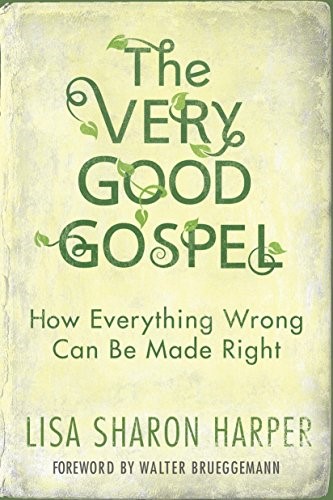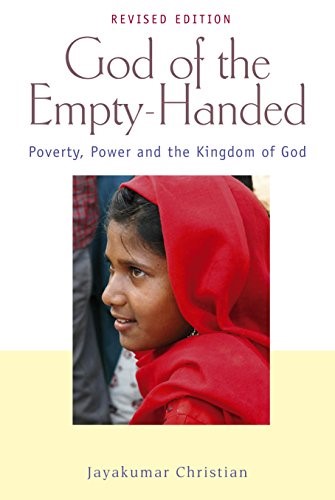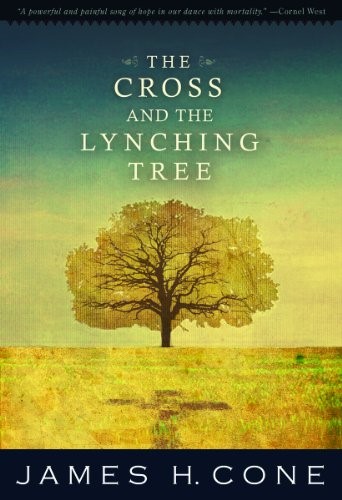By Graham Joseph Hill, coauthor of Hide This in Your Heart
There are so many books that have changed my life that it’s difficult to know where to start. Over the last 10 years, I’ve mainly read books written by Black, Indigenous, and People of Color writers, or authors from the Global South. This has changed the trajectory of my life and of my way of seeing faith, mission, and discipleship.
 1. The Very Good Gospel by Lisa Sharon Harper
1. The Very Good Gospel by Lisa Sharon Harper
A truncated, individualistic, formulaic gospel isn’t good news. Our gospel must be good news to all people, otherwise it isn’t the gospel at all. The gospel must reflect the full biblical witness. Lisa Sharon Harper challenges us to see that “Shalom is the very goodness of the gospel.” As we live into God’s shalom, we experience restored relationships with God, with self, between genders, with creation, within broken families, between races, and between nations. When we pursue and express God’s shalom we are living out the very good gospel. And we serve as witnesses to the presence of the kingdom of God in a broken, conflicted, and troubled world. Jesus offers a way back to God’s shalom. Lisa Sharon Harper changed the way I see and live out the gospel.
 2. God of the Empty-Handed by Jayakumar Christian
2. God of the Empty-Handed by Jayakumar Christian
Christian movements are born at the margins. They thrive there. And they spread out from there. God doesn’t only place the margins at the center of his love, concern, and mission. He begins movements there. God’s mission is from the margins. Jesus was a Galilean Jews. He didn’t just care for the margins: He was from the margins himself. Mission is about challenging the usual questions that are asked, and raising disruptive questions. Jayakumar Christian changed the way I see mission. Mission born at the margins (the margins of church and society) confronts our god-complexes. Jesus reveals himself in the weak and unexpected places and people. And he calls us to use what power, privilege, wealth, and status we have to enrich others, care for those most vulnerable, address injustice, usher in peace, and support human flourishing. Jesus invites us to confront the status quo and to offer another way.
 3. Disciples of All Nations by Lamin Sanneh
3. Disciples of All Nations by Lamin Sanneh
The future of the global church rests in its “world” character. Lamin Sanneh says that the rise of World Christianity shows that the West is itself only a stage in the transmission of the gospel; its high water mark once, but now no longer so, as is evident in the gravitational shift of the momentum of Christianity. This calls for a new sense of partnership, not continued paternalism. This is the era of World Christianity and the post-Western Christian awakening, and this offers extraordinary opportunities for repentance and lament for the past, for humility and a learning-posture, and for genuine partnerships that enrich all churches all over the globe. Lamin Sanneh changed the way I see the church and opened my ears to Christian voices from Asia, Africa, the Middle East, the Pacific, the Caribbean, Indigenous Peoples, and Latin America.
 4. Mirror to the Church by Emmanuel Katongole
4. Mirror to the Church by Emmanuel Katongole
In his book Mirror to the Church, Emmanuel Katongole reflects on the Rwandan genocide. Between 7 April and 15 July 1994, somewhere between 500,000 and 1,000,000 people were killed during genocide. Katongole says that Rwanda is a “mirror to the church” that compels the church to embrace a new identity in Christ. Rwanda is a mirror to the church that calls the church to reflect on its deep brokenness, entrenched conflicts, and bad theology, and to pursue lament and reconciliation. Emmanuel Katongole says that Rwanda is an extreme example of what happens when racial, political, religious, national, and other “identities” take the place of our identity in Christ. Rwanda is an extreme example, but it’s a mirror to the problems in the church today. Emmanuel Katongole’s writings changed me, making me realize that we must confront racial and political divisions head on.

 5. The Christian Imagination by Willie James Jennings, and The Cross and the Lynching Tree by James H. Cone
5. The Christian Imagination by Willie James Jennings, and The Cross and the Lynching Tree by James H. Cone
I know I’m cheating by listing two books here, but these two books together changed my life. They both challenge so much of my understanding about politics, race, land, place, creation, discipleship, and community. In an era where Christian identities seem so enmeshed with race, politics, nationalism, and material goods, Willie James Jennings’ book is both a historical study of how we ended up in this place, and a contemporary challenge to imagine a different reality. Jennings shows how the Christian social imagination is often diseased and disfigured. It’s wedded to racialized, individualistic, privatized, and rootless identities. We need to confront this situation head on, if we are going to witness to Jesus and his gospel. James Cone shows the hopeful power of the Cross moving us from racism and oppression, to repentance and change. The Cross challenges us to confront power and violence, racism and control. James H. Cone and Willie James Jennings forever changed the way I see and respond to issues of race, politics, and faith.
 Hide This in Your Heart by Michael Frost and Graham Hill
Hide This in Your Heart by Michael Frost and Graham Hill
Michael Frost is a leading voice in the international missional-church movement. Author of more than a dozen books, he is also cofounder of the international Forge Mission Training Network, vice principal of Morling College, and founding pastor of Small Boat Big Sea. Frost is a highly sought-after speaker, traveling internationally multiple times a year.
Memorizing Scripture has been proven to be an essential, life-giving practice for spiritual growth. Those who memorize passages from the Bible can point to how it’s given them greater assurance of God’s love and a deeper understanding of how to follow Jesus.
In this new resource by two leaders of the worldwide missional church movement, Scripture memorization is put to new use, helping believers in Jesus to become active partners in proclaiming and demonstrating that the Kingdom of God is living and active and good for the world.
Join Michael Frost and Graham Hill on this journey into the Bible, learn how your brain can be formed and transformed by the Scriptures, and find yourself better equipped to live and declare the good news of Jesus Christ.




